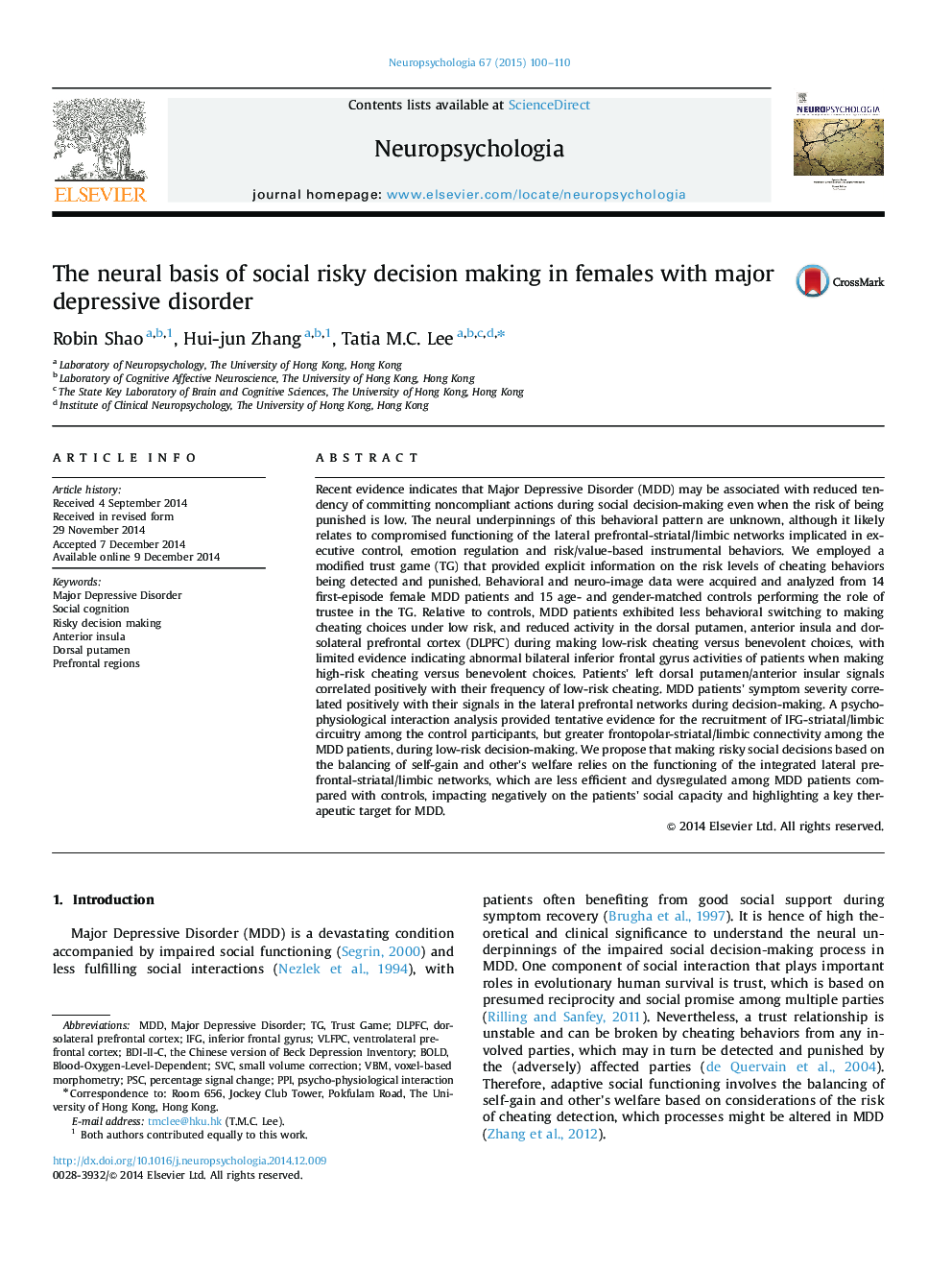| Article ID | Journal | Published Year | Pages | File Type |
|---|---|---|---|---|
| 7320551 | Neuropsychologia | 2015 | 11 Pages |
Abstract
Recent evidence indicates that Major Depressive Disorder (MDD) may be associated with reduced tendency of committing noncompliant actions during social decision-making even when the risk of being punished is low. The neural underpinnings of this behavioral pattern are unknown, although it likely relates to compromised functioning of the lateral prefrontal-striatal/limbic networks implicated in executive control, emotion regulation and risk/value-based instrumental behaviors. We employed a modified trust game (TG) that provided explicit information on the risk levels of cheating behaviors being detected and punished. Behavioral and neuro-image data were acquired and analyzed from 14 first-episode female MDD patients and 15 age- and gender-matched controls performing the role of trustee in the TG. Relative to controls, MDD patients exhibited less behavioral switching to making cheating choices under low risk, and reduced activity in the dorsal putamen, anterior insula and dorsolateral prefrontal cortex (DLPFC) during making low-risk cheating versus benevolent choices, with limited evidence indicating abnormal bilateral inferior frontal gyrus activities of patients when making high-risk cheating versus benevolent choices. Patients' left dorsal putamen/anterior insular signals correlated positively with their frequency of low-risk cheating. MDD patients' symptom severity correlated positively with their signals in the lateral prefrontal networks during decision-making. A psycho-physiological interaction analysis provided tentative evidence for the recruitment of IFG-striatal/limbic circuitry among the control participants, but greater frontopolar-striatal/limbic connectivity among the MDD patients, during low-risk decision-making. We propose that making risky social decisions based on the balancing of self-gain and other's welfare relies on the functioning of the integrated lateral prefrontal-striatal/limbic networks, which are less efficient and dysregulated among MDD patients compared with controls, impacting negatively on the patients' social capacity and highlighting a key therapeutic target for MDD.
Keywords
PSCMDDBOLDVBMPPIsmall volume correctionDLPFCIFGSVCMajor depressive disorderTrust gameRisky decision makingPsycho-physiological interactionanterior Insulablood-oxygen-level-dependentSocial cognitioninferior frontal gyrusventrolateral prefrontal cortexdorsolateral prefrontal cortexvoxel-based morphometry
Related Topics
Life Sciences
Neuroscience
Behavioral Neuroscience
Authors
Robin Shao, Hui-jun Zhang, Tatia M.C. Lee,
